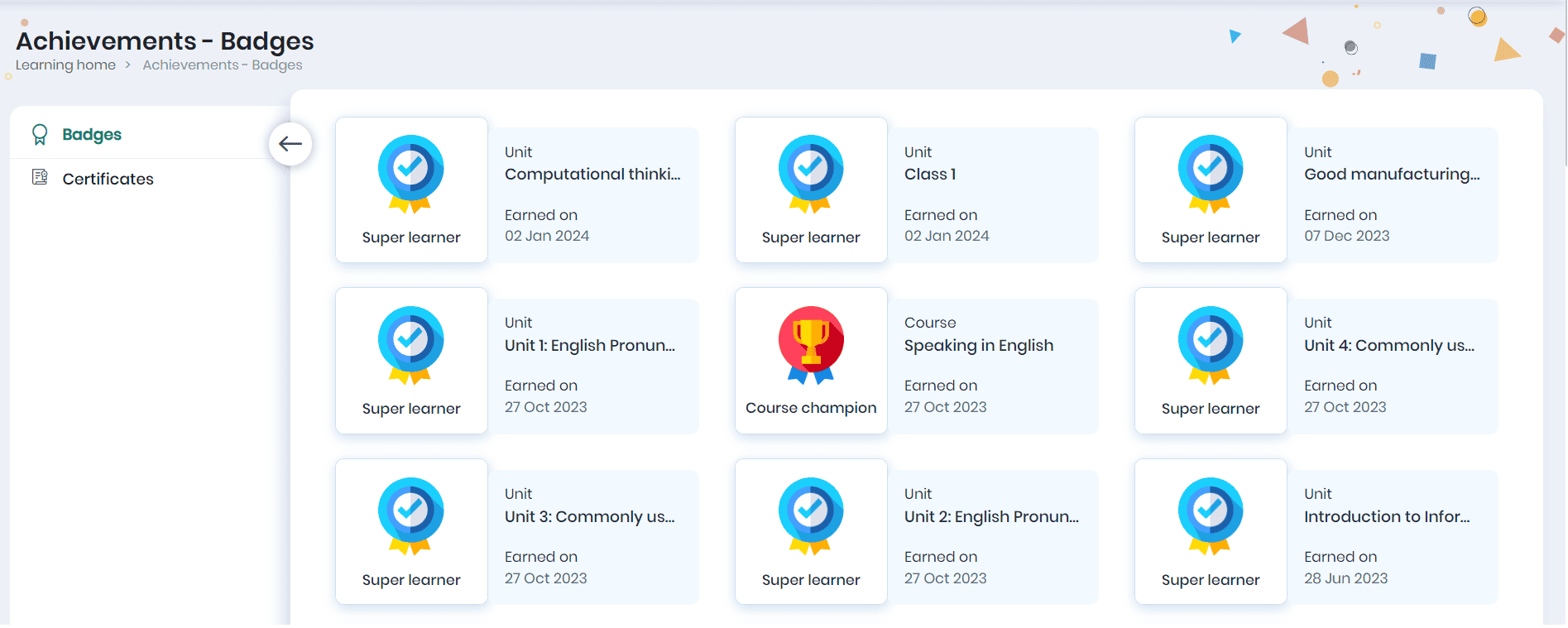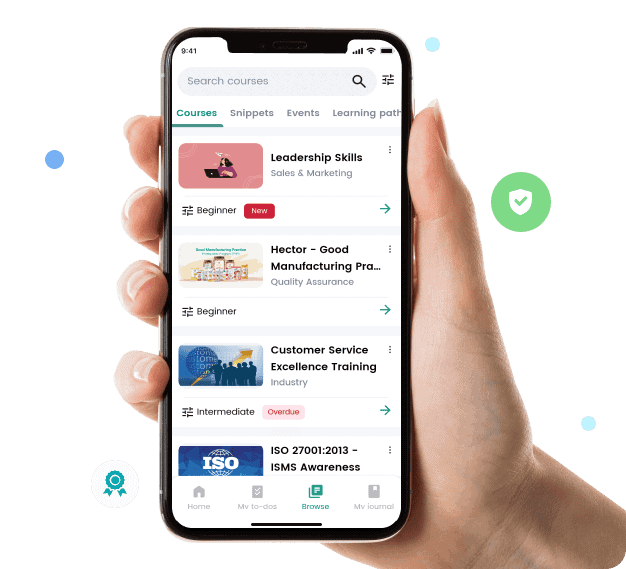Remote Workforce Solutions: A Guide to Effective Training

A decade ago, remote work was uncommon, typically only accessible as a special arrangement to assist people in certain circumstances. However, in 2022, it’s a different ball game altogether. The essence of work has shifted dramatically with the rise in remote working or work-from-home.
Cultivating a robust remote work culture is becoming routine in daily life. Organizations have started increasingly focusing on work done rather than hours worked or necessitating tools and apps to oversee remote employee performance. Continuous feedback while overseeing work, on the other hand, has become increasingly requisite as managers attempt to assist employees in navigating their job tasks and meeting performance objectives. Therefore, it is vital to rethink how goals get created and determine crucial performance metrics when handling remote workers in today’s work environment.
The perks of remote work for businesses are that it is more business-oriented. Among the benefits include:
- Cost savings – The overhead expenses for organizations drop by half due to lower or zero costs for office space, utilities, office supplies, etc.
- Employee well-being – Remote employees are happier and healthier, and they are relaxed and more concentrated, which equates to improved business in general.
- Global access – By utilizing remote work, firms can invite global talent to join their organization regardless of location.
As the pandemic settles, many businesses are considering a new hybrid virtual model in which some employees work on-site and others work from home. The new model offers individuals and smaller teams enhanced productivity, greater individual flexibility, and better employee experiences.
Keeping Your Remote Team Engaged: Conquering Training Challenges
Remote training comes with its own set of challenges, regardless of its convenience. Some of the most frequent issues you may encounter include:
-
Trainees’ lack of attention
-
Technical issues
-
Distractions at home
-
Feelings of social isolation
-
Scheduling
Remote Workforce Solutions: 7 Easy Tips to Train Your Team Anywhere
Establishing an effective remote training program can be intimidating initially, but that doesn’t mean it can’t succeed! Here are some effective practices for remote staff training.
1. Use a range of training formats and file types
The best method is to combine different training formats. For example, you can use synchronous learning methods like conference calls or online meetings, where people can interact and learn from each other. On the other hand, asynchronous or on-demand learning is self-paced and involves employees learning from online materials at their convenience.
2. Make the training accessible via mobile devices
Remote employees need not constantly work from home and might not always be in front of their computers or laptops. It is critical to ensure that training is mobile-friendly and always accessible.
3. Establish a learner community
Tools for communication and productivity, such as Slack, Asana, and Trello, make remote working and training more straightforward than ever before. In addition, such solutions establish a space for several employees participating in the same remote training session to engage in discussions and share ideas and expertise.
4. Assess the effectiveness of training
Tracking the efficacy of your remote training is critical for several reasons. It assists in determining which courses and training are most successful and which need improvement or replacement. Also, it helps to identify the learners’ progress.
5. Make remote training self-paced
Consider making some aspects of the remote training self-paced to give your employees additional flexibility. For example, offering them a completion deadline and letting them choose when to work through it based on their schedule and preferred learning style.
6. Incorporate gamification
Gamification is an excellent approach to increasing interactivity, engagement, and motivation among your learners while reducing distraction.

7. Utilizing training software
If you have a large corporation, remote training software or learning management system (LMS) targeted toward remote settings will help you successfully plan, implement, and deliver your training program.
8. Promote a learning culture
Instilling a concept of learning in your employees when they join your firm is imperative. Your remote training programs should be ongoing rather than a one-time event.
Remote Workforce Training Made Easy: Reap Big Benefits with Simple Solutions!
Many organizations may use traditional classroom learning, but this may not be practical in the present climate. A holistic Learning Management System (LMS) can assist the modern work culture. One of the primary advantages of an LMS is e-learning, which eliminates the time and distance constraints that foster efficient learning and allows employees to complete training courses at their leisure. In addition, employees can select between blended learning and self-paced learning, depending on their preferences. Benefits of LMS include:
- Reduces training time significantly – Traditional classroom training requires employees to leave their workstations and attend training in a conference room. However, according to Brandon and Hall’s research, remote training saves employee time by 40% to 60%.
- Provides employees with flexibility – One impressive characteristic of eLearning is its potential to provide employees with flexibility. Employees can start the course anytime they want and complete it at their own pace. They can also choose their comfortable learning modes across various materials such as files, documents, videos, links, etc.
- Limitless access to learning resources – This allows employees to access training materials at any time, whenever they need them.
- Improves employee retention – According to a Gallup study, 87% of millennials believe that learning and development opportunities are crucial in their workplace. Implementing an effective and easy learning program can enhance employees’ abilities and improve the organization’s performance.
- Encourages debate and discussion – Real-time exchanges with peers and instructors allow your staff to clarify course-related doubts and better comprehend the course materials.
- Easier assessment – Ensuring that every employee gets the most out of their training sessions is vital. LMSs can administer tests and assignments to determine whether your employees have grasped the training sessions.
- Enables feedback – Constructive criticism from instructors and managers assists employees in improving their skills. In exchange, employees can also submit feedback on the courses and teachers. This allows you to increase the quality of employee training and tailor it to their tastes and needs.
Having discussed the benefits of modern LMS, it is vital to adopt an ideal learning management system to ensure organizational and employee growth.
The Remote Training Advantage: How Skill Lake Can Help
Skill Lake is an efficient and holistic LMS solution that aids organizations in providing remote training. It navigates any industry challenges at scale, irrespective of the organization’s size. Skill Lake enables businesses to create an employee-centric learning culture in which learning occurs holistically and helps your organization achieve its goals. Some interesting features of the platform include interactive learning (live webinars), immediate feedback (guided tests), self-paced learning, gamification, and many more. Skill Lake is a dynamic product that can satisfy the needs of present and future workforces. Explore more about Skill Lake by taking a quick demo here.
Build a culture of continuous learning with Skill Lake’s state-of-the-art people development platform. Give your employees professional training to help them excel in their job roles and propel your business to greater efficiency and success.
Start Today


Alphons Xavier
Alphons is a seasoned HR professional with a specialized focus on talent management and development. With a particular expertise in learning and development, Alphons excels in designing and executing tailored L&D activities that align with the organization's objectives. Driven by a strategic mindset and a passion for fostering continuous learning cultures, Alphons is dedicated to instigating behavioral and cultural shifts within the organization. She collaborates closely with business leaders to identify areas for improvement and develops innovative strategies to bring about meaningful change.